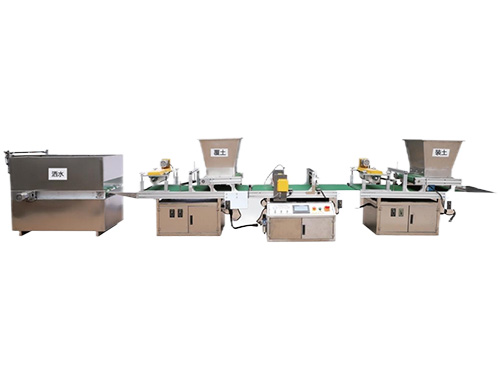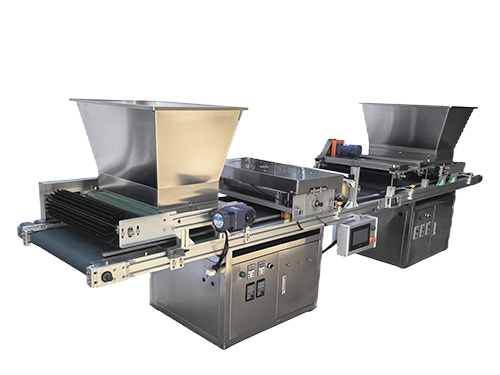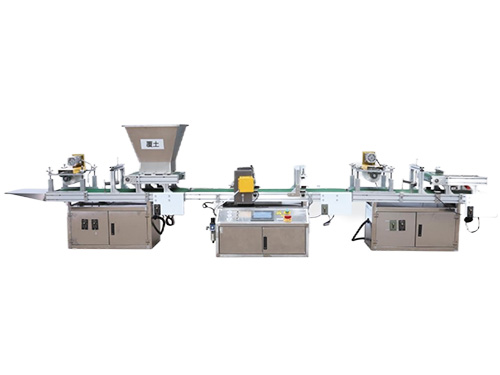Recycling and Reusing Seedling Trays: A Feasible Solution to Reduce Agricultural Waste
2024-11-20 17:08:39
With the promotion of sustainable agriculture, reducing agricultural waste and promoting resource recycling have become key tasks in modern agriculture. In this context, the use of recyclable seedling trays has gradually emerged as an effective solution to the agricultural waste problem. Through proper collection and reuse of seedling trays, not only can environmental pollution be reduced, but agricultural production costs can also be lowered, and resource utilization efficiency can be enhanced. This article will explore the advantages of recyclable seedling trays, how to implement recycling and reuse, and their practical applications in agricultural production.
What are Recyclable Seedling Trays?
Recyclable seedling trays are planting containers that can be recycled and reused after use. Unlike traditional single-use plastic seedling trays, recyclable seedling trays are typically made from materials that can be reused (such as high-density polyethylene HDPE or other eco-friendly plastics). They have a longer lifespan and can be cleaned, disinfected, and reused. This design not only helps reduce plastic waste but also effectively reduces the environmental burden of agricultural production.
Environmental Benefits of Recyclable Seedling Trays
1. Reducing Agricultural Waste
Traditional seedling trays are typically single-use and often discarded after use, contributing to agricultural waste and environmental pollution. The use of recyclable seedling trays can significantly reduce this type of waste. Through proper recycling, cleaning, and reuse, recyclable seedling trays can bring long-term benefits to agricultural production, preventing large amounts of plastic waste from entering the natural environment.
2. Reducing Plastic Pollution
Plastic containers discarded in agriculture are one of the major sources of plastic pollution, especially in large-scale agricultural production, where vast amounts of plastic seedling trays are discarded, creating a significant environmental burden. The introduction of recyclable seedling trays effectively addresses this issue, preventing plastic containers from remaining in the soil and water sources for extended periods, thus reducing pollution.
3. Promoting Resource Recycling
By using recyclable seedling trays, agricultural production can achieve better resource recycling. After being collected, seedling trays can be properly cleaned and disinfected and reused for planting crops. This allows farmers to reduce the costs of purchasing new trays, enhancing production efficiency.
Recycling and Reuse Solutions for Recyclable Seedling Trays
1. Establishing a Recycling System
To ensure the effective reuse of recyclable seedling trays, a comprehensive recycling system needs to be established. Agricultural businesses or farmers can promote the recycling of seedling trays in the following ways:
Centralized Recycling Points: Set up collection points in agricultural production areas to facilitate the gathering of used seedling trays from farmers.
Cooperative or Organization Recycling: Agricultural cooperatives or farm owners can organize regular recycling events to encourage farmers to return discarded seedling trays.
Collaboration with Suppliers: Some seedling tray manufacturers and suppliers may offer recycling services, agreeing with farmers on recycling plans when the product is sold for unified collection.
2. Cleaning and Disinfection
Recycled recyclable seedling trays need to undergo cleaning and disinfection procedures to ensure that they do not pose a risk of pest or disease transmission during reuse. Usually, the trays are cleaned with high-temperature steam or sanitized with eco-friendly disinfectants to ensure they can be safely reused.
3. Regular Maintenance and Replacement
Although recyclable seedling trays are designed for long-term use, over time, some trays may become worn out or damaged. To ensure the effectiveness of the trays, farmers and businesses need to regularly check their condition and replace broken trays in a timely manner, preventing any impact on seedling growth.
Economic Benefits of Recyclable Seedling Trays
1. Reducing Production Costs
Using recyclable seedling trays not only benefits the environment but also helps agricultural producers reduce the cost of purchasing new trays. After recycling and cleaning, the trays can be reused, lowering raw material and production costs. Therefore, in the long run, using recyclable seedling trays provides significant economic benefits.
2. Improving Production Efficiency
Recycling and reusing seedling trays help farmers manage seedling resources more effectively, reducing the complexity and cost of purchasing new products while also avoiding resource waste. By implementing recycling and reuse systems, agricultural producers can improve production efficiency and operational management.
3. Attracting Green Certifications
An increasing number of consumers are focusing on eco-friendly products, prompting agricultural businesses to move toward greener and more sustainable practices. Using recyclable seedling trays can help farms obtain green or organic certifications, increasing market competitiveness and improving brand image.
Future Development of Recyclable Seedling Trays
As environmental regulations become stricter and the demand for sustainable agriculture grows, the application prospects of recyclable seedling trays in agricultural production are broad. In the future, as technology continues to advance, recycling and processing technologies for seedling trays will become more mature, and the types and materials of recyclable seedling trays will become more diverse. In addition, government and social organization support, along with rising consumer environmental awareness, will further promote the establishment and improvement of recycling systems.
How to Choose the Right Recyclable Seedling Tray?
When selecting recyclable seedling trays, farmers and businesses should pay attention to the following factors:
Material Safety: Choose non-toxic, harmless materials that can withstand high-temperature disinfection.
Durability and Stability: High-quality recyclable seedling trays should be durable and stable, able to withstand multiple cycles of recycling and use.
Eco-friendly Design: Ensure that the design of the trays meets environmental standards and is easy to clean and reuse.
Suitable Specifications: Choose seedling trays of the right size and specification based on the type of crop and planting scale.
Conclusion
Recyclable seedling trays, as an innovative agricultural tool, provide a feasible solution for reducing agricultural waste, lowering production costs, and promoting resource recycling. Through effective recycling and reuse, farmers can not only improve production efficiency but also contribute to environmental protection. As recycling systems continue to improve, recyclable seedling trays will play an increasingly important role in future agricultural production. If you are looking to reduce waste in agricultural production and promote sustainable development, adopting recyclable seedling trays will be a wise choice.

The CNC Seed Braiding Machine is a high-precision, fully automated agricultural equipment s...

It adopts electrical integration and can be started by pressing the fully automatic button ...

The XP750 seeder has stable performance, excellent product quality, simple and convenient o...

It adopts electrical integration and can be started by pressing the fully automatic button ...



